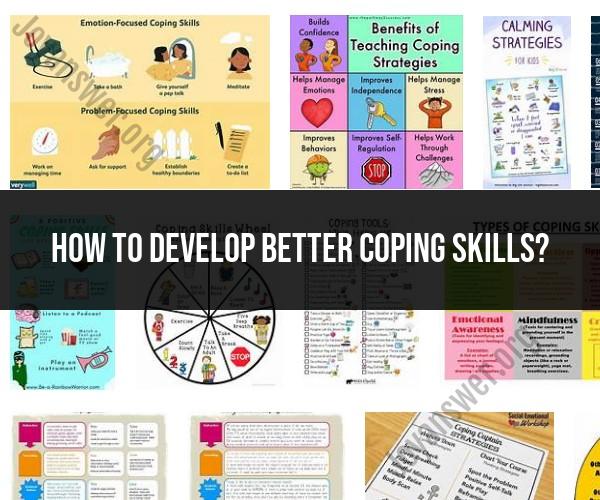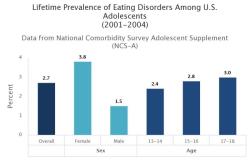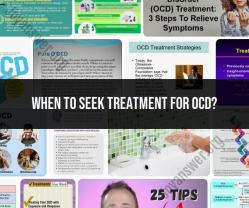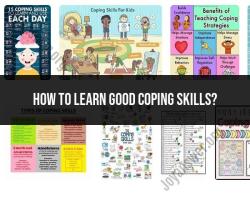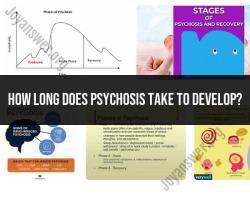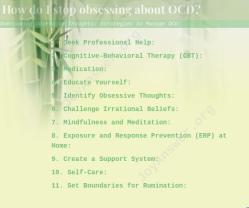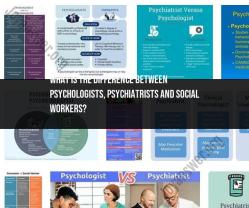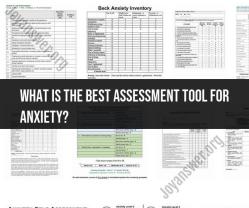How to develop better coping skills?
Developing better coping skills is essential for building resilience and effectively managing stress, challenges, and adversity in life. Here are strategies to help you enhance your coping skills:
Identify Stressors:Start by recognizing the sources of stress and challenges in your life. This can include work, relationships, health issues, or financial concerns. Identifying stressors is the first step in addressing them.
Self-Awareness:Understand your emotional responses to stress. Pay attention to your thoughts, feelings, and physical sensations when you encounter stressors. Self-awareness is key to developing effective coping strategies.
Practice Mindfulness:Mindfulness techniques, such as meditation and deep breathing exercises, can help you stay present and reduce anxiety. Regular mindfulness practice enhances your ability to manage stress.
Seek Social Support:Don't hesitate to reach out to friends, family members, or support groups when you're facing challenges. Sharing your thoughts and feelings with others can provide comfort and valuable perspectives.
Healthy Lifestyle Choices:Maintain a balanced diet, get regular exercise, and prioritize sleep. These factors can significantly impact your ability to cope with stress and maintain emotional well-being.
Time Management:Improve your time management skills to reduce feelings of overwhelm. Prioritize tasks, set realistic goals, and break larger tasks into smaller, manageable steps.
Problem-Solving Skills:Learn effective problem-solving techniques to address challenges more constructively. This involves identifying issues, generating potential solutions, evaluating options, and implementing the best course of action.
Positive Thinking:Cultivate a positive mindset. Challenge negative thoughts and replace them with more optimistic and constructive ones. Positive affirmations can help reframe your thinking.
Seek Professional Help:If you're struggling to cope with stress, consider speaking to a therapist or counselor. They can provide guidance, coping strategies, and support tailored to your specific needs.
Develop Resilience:Resilience is the ability to bounce back from adversity. Cultivate resilience by learning from setbacks, viewing challenges as opportunities for growth, and building a support network.
Practice Relaxation Techniques:Explore relaxation techniques such as progressive muscle relaxation, guided imagery, or yoga. These practices can help reduce stress and promote relaxation.
Set Realistic Expectations:Avoid setting overly high or perfectionist expectations for yourself. Recognize that it's okay to make mistakes and that nobody is perfect.
Maintain Healthy Boundaries:Establish and maintain clear boundaries in your personal and professional life. Setting limits can prevent burnout and reduce stress.
Engage in Hobbies and Interests:Make time for activities you enjoy. Hobbies and interests provide a healthy outlet for stress and offer a sense of fulfillment.
Celebrate Achievements:Acknowledge and celebrate your accomplishments, no matter how small they may seem. This can boost self-esteem and motivation.
Remember that building better coping skills takes time and practice. Be patient with yourself and continuously work on self-improvement. Over time, these strategies can help you become more resilient and better equipped to navigate life's challenges.
Building Resilience: Strategies to Develop Better Coping Skills
Resilience is the ability to adapt and bounce back from adversity. It is a skill that can be developed and strengthened over time.
Here are some strategies for building resilience and developing better coping skills:
- Identify your coping mechanisms. What are the healthy ways that you deal with stress and difficult emotions? Once you know what your coping mechanisms are, you can make sure to use them when you are feeling overwhelmed.
- Develop new coping mechanisms. If you don't have a lot of healthy coping mechanisms in place, there are a number of things you can do to develop new ones. Some helpful coping mechanisms include exercise, relaxation techniques, mindfulness, and spending time in nature.
- Build a support network. Having a strong support network of people who care about you can make a big difference when you are facing challenges. Make sure to connect with your friends and family members regularly.
- Take care of yourself. Make sure to get enough sleep, eat healthy foods, and exercise regularly. Taking care of your physical and mental health will make you better able to cope with stress and adversity.
Emotional Strength: Enhancing Coping Skills for Life's Challenges
Emotional strength is the ability to manage your emotions effectively. It is also the ability to cope with stress and adversity in a healthy way.
Here are some tips for enhancing your emotional strength and coping skills:
- Identify your emotions. The first step to managing your emotions is to be able to identify them. What emotions are you feeling? Once you know what emotions you are feeling, you can start to understand them and develop healthy ways of coping with them.
- Accept your emotions. It is important to accept that all emotions are valid, even the negative ones. Trying to suppress your emotions will only make them worse.
- Express your emotions in a healthy way. There are a number of healthy ways to express your emotions, such as talking to a friend, writing in a journal, or exercising.
- Seek professional help if needed. If you are struggling to manage your emotions on your own, don't be afraid to seek professional help. A therapist can teach you healthy coping skills and help you to develop emotional resilience.
Coping with Stress: The Road to Developing Resilience
Stress is a normal part of life. However, too much stress can have negative consequences for your physical and mental health.
Here are some tips for coping with stress and developing resilience:
- Identify your stressors. What are the things in your life that are causing you stress? Once you know what your stressors are, you can start to develop strategies for coping with them.
- Make lifestyle changes. There are a number of lifestyle changes that you can make to reduce your stress levels, such as getting enough sleep, eating healthy foods, and exercising regularly.
- Learn relaxation techniques. Relaxation techniques such as deep breathing, meditation, and yoga can be very helpful for reducing stress.
- Build a support network. Having a strong support network of people who care about you can make a big difference when you are feeling overwhelmed. Make sure to connect with your friends and family members regularly.
- Seek professional help if needed. If you are struggling to cope with stress on your own, don't be afraid to seek professional help. A therapist can teach you healthy coping skills and help you to develop resilience.
Developing resilience is a journey, not a destination. It takes time and effort to build the skills and strength that you need to cope with life's challenges. However, it is a journey that is well worth taking.
